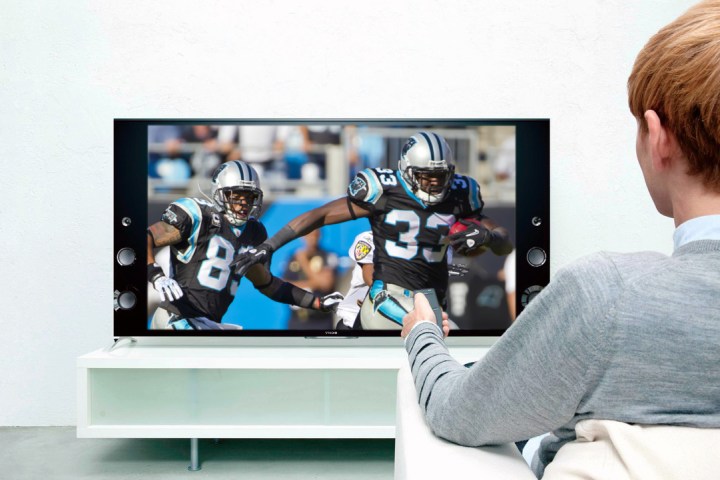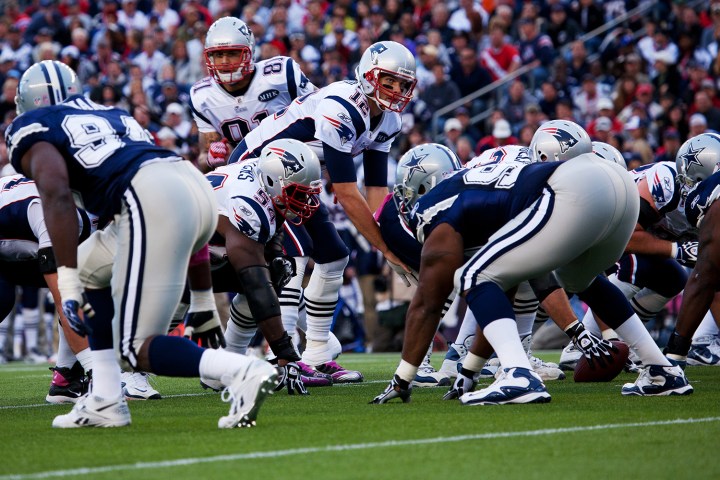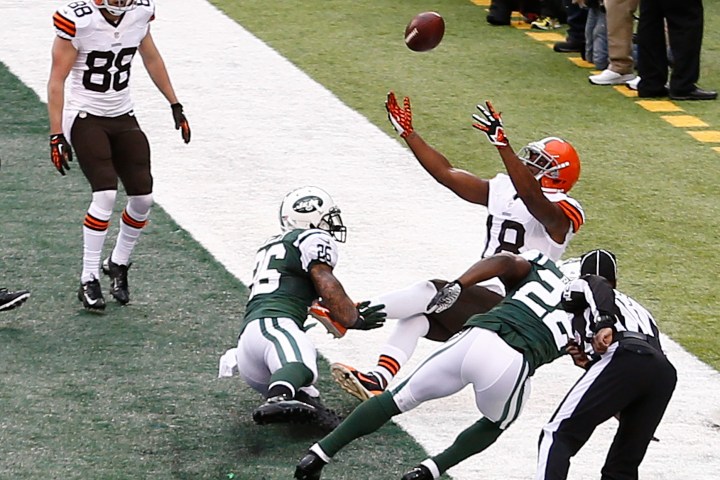
That was me two weeks ago, talking to the DirecTV phone rep, breaking up with my NFL Sunday Ticket Package.
There are now more ways than ever to get your NFL fix. In addition to DirecTV’s Sunday Ticket, there’s Sunday Ticket Max, SundayTicket.TV, NFL Mobile by Verizon, NFL Game Pass, NFL Now, NFL Red Zone, The NFL Network, Sirius/XM, ESPN, and the broadcast networks. CBS is going so far as to stream multiple games online this season. Even Yahoo is getting into the NFL broadcasting business. Oh, and of course you can still go to games in person, too, if that’s your thing.
After three decades of faithful NFL fandom, I’m done with the sport.
But I won’t be using any of them.
After three decades of faithful NFL fandom, I’m done with the sport. I just can’t in good conscious give the NFL another minute of my time, let alone another dollar from my wallet.
Technology didn’t create the problems that make me despise the NFL, but it’s helping illuminate them. From MRI scans, to high-tech new stadiums, and even just Internet-based fantasy football leagues, modern tech has teased out just how far the organization will go to turn a profit. And something is clearly broken.
Big hits, big injuries, big deal?
First, there’s the NFL’s concussion problem. This is probably the most troubling aspect of the sport for me. Over the course of the last decade, advances in medical tech have led to startling discoveries about just how damaging the sport is to its players. It’s now apparent that the very basis of the sport — repetitive, upper-body collisions — causes brain damage that players have to live with long after their careers end. The NFL has been shameless in its efforts to quash this legitimate scientific research. Former players have had to sue to hold their former employer accountable for their actions, to get any kind of relief.
Let me be clear about this: The problem isn’t that players voluntarily entered a dangerous sport and broke some bones, but knew what they were in for. We’re talking about a level of physical damage that’s invisible to the naked eye, damage that the NFL went out of its way to deny even existed at all. We now know there’s no such thing as a “minor concussion,” and that players don’t just “get their bell rung,” yet the NFL still pays people in the media to dispense those myths.
The worst part of the NFL’s handling of the issue? By attacking the science itself, the League isn’t just affecting the lives of its own players — it’s affecting the lives of anyone who plays football at any level, even kids who don’t play past middle school.
If you build it, they will come (and we’ll take the money)
Even if the NFL were to suddenly change its tune on concussions, it still has what I call “the new stadium problem.” As the sport has grown more popular, NFL owners — with the league’s backing and support — leveraged that popularity to hold communities hostage for new stadiums they don’t need, threatening to move franchises to new cities if they don’t get their way. What do they want? Taxpayer-funded, billion-dollar stadiums. What else do they want? Every single piece of revenue those stadiums generate, even from non-football events. What don’t they want? To pay for them.
The NFL would have us believe that these stadiums pay for themselves over time, by creating jobs and generating new revenue for their surrounding cities. Sadly, that rarely actually happens. The jobs don’t stick around beyond construction. And all that new revenue? Turns out to be not that much. Communities would be better off issuing bonds directly to improve their schools, rather than for a new stadium, with the hope of money trickling down to schools. But if a city did that, the NFL would throw a hissy fit. Teams literally threaten to pick up the ball and leave if they don’t get their way. (And, yes, that is a correct use of “literally.”)
What galls me most is how the NFL uses technology to sell these stadiums as “must-have upgrades” over current venues. NFL owners turn into Steve Jobs whenever they unveil their grand plans for a new sports/retail/entertainment complex on prime waterfront property. They spotlight massive Jumbotrons and retractable roofs. As fans, we wind up paying twice for these “upgrades.” First with our tax dollars, then, again, when we show up on game day and see that all the prices have gone up. Way up.
The NFL isn’t the only pro sport that plays the stadium shell game, but its teams are the most egregious offenders, especially when you consider these stadiums only host football games a dozen times a year (if you’re lucky).
I’m actually hoping that Los Angeles finally gets a pro team, just so that owners elsewhere can finally stop threatening to move to LA if their ransom demands aren’t met.
There are no secrets on the Internet
Then there’s NFL’s atrocious record with gender issues, homophobia, cheating, and mascot offensiveness. If this wasn’t a tech-centric column, I could write another thousand words just on those issues alone. Each.
The athletes themselves aren’t helping the matter by being terrible people. And I’m not just talking about the driving drunk, spousal abuse, sexual assault, and murder they sometimes commit. Thanks to social media, we can no longer delude ourselves into thinking that these people are anything special off-the-field.
And speaking of the Internet, don’t get me started on fantasy football. Fantasy football is the current gateway drug to NFL addiction. The NFL figured out over a decade ago that they could let all these FF sites proliferate — many of which are just thinly veiled gambling sites — to hook casual sports fans into consuming more and more of their product. I know because I was one of them.
Fantasy Football — along with the televised multi-day draft and overhyped scouting combines — is emblematic of just how ruthlessly efficient the NFL has become at maximizing its exposure year round. Think October is too soon for Christmas decorations? The NFL never wants you to take their flags down.
Teams literally threaten to pick up the ball and leave if they don’t get their way.
And no column lamenting the current state of the NFL would be complete without mentioning Roger Goodell, the current Commissioner, who’s been racking up the unfavorable headlines at an alarming rate.
Did you know that until just recently, the NFL was considered a “non-profit” entity, despite the fact that Goodell makes $40 million per year? And do you know why they finally gave up that status? So that Goodell can more easily hide how much he makes. That’s not exactly altruism, especially since you know they’re just going to compensate for the additional tax hit by finding a new way to squeeze money from their fans.
Can stop, will stop
Can things change? Sure. Anything is possible. It wasn’t that long ago that baseball was the most dominant sport in the U.S. But the NFL is simply too big and powerful. Super Sunday has become a national holiday. The League can pretty much print its own money at will. It has zero incentive to change. Not until the awful headlines finally start affecting their bottom line.
In other words, not until people stop watching. Which is what I’m doing.





